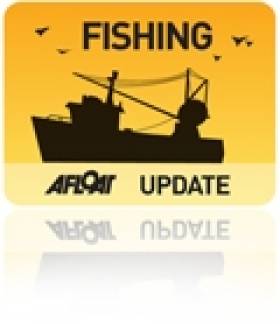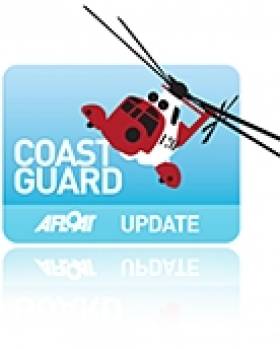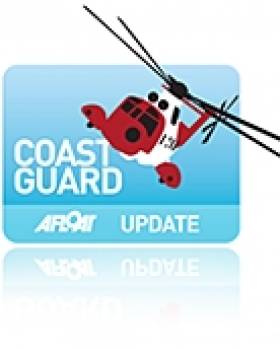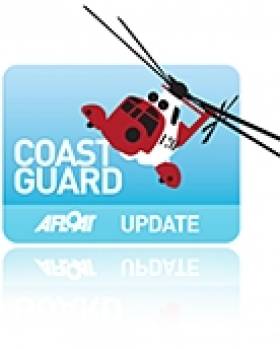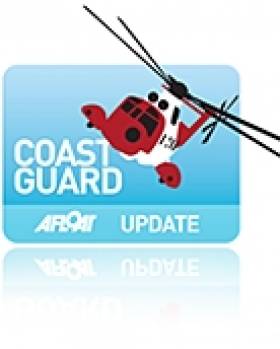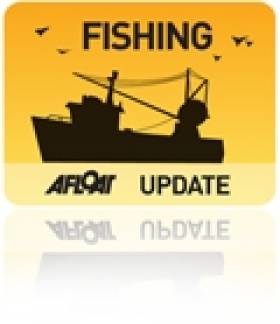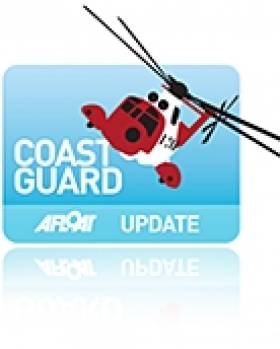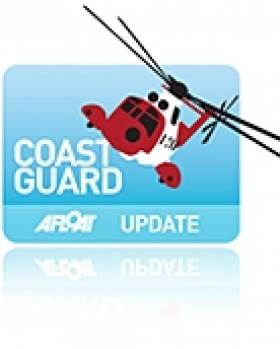Displaying items by tag: Coastguard
Commercial Motor Yacht Owner Pleads Guilty
The merchant vessel 'Sarah May III' is registered in the UK, certificated under the Code of Practice for the Safety of Small Commercial Vessels and licensed to carry no more than twelve passengers. On 6th June 2008 it carried more than 20 passengers across the Irish Sea from Strangford to Peel, Isle of Man.
The vessel, owned by local man Mr Grahame Stronge, was captured on CCTV at both Strangford and Peel as the passengers boarded the vessel.
View Larger Map
At the Magistrate's Court in Downpatrick on 7th Nov 2011 the owner pleaded guilty of failing to comply with the Code of Practice for the Safety of Small Commercial Vessels and to a breach of survey and certification regulations.
The owner was fined a total of £800
On summing up the Magistrate Brian Archer said:
"Good fortune, as much as there was no accident, the defendant knew he was overloaded and he was lucky there wasn't a tragedy, hopefully this won't happen again.
Captain Bill Bennett, Area Operations Manager (Survey and Inspection) Belfast for the MCA stated that:
"This was a serious breach of the Survey and Certification Regulations and should serve as a reminder to all operators of the dangers of carrying more passengers than the vessel is certificated and equipped to carry. All breaches of the Maritime Regulations are taken seriously by the Maritime and Coastguard Agency."
Fishing Vessel Skipper Pleads Guilty
On 3rd January 2011 the UK registered fishing vessel 'Karen' was returning from a day's fishing in the Irish Sea when it grounded on the rocks at the North entrance to the port of Ardglass.
The vessel asked for urgent assistance from the Coastguard and the lifeboat from Portaferry was requested to launch to their aid. Because the weather was fair they were able to bring the crew ashore to Ardglass and to put pumps aboard the stricken vessel. The boat was later re-floated as the tide rose, however it sustained serious damage to the bow and keel.
At the Magistrate's Court in Downpatrick on 7th November 2011, skipper Simon Wills pleaded guilty of failing to properly navigate his vessel and to employing crew who were not qualified and did not meet the requirements of the fishing vessel safety training regulations
Mr Wills was fined a total of £600 and ordered to pay £1,250 to the RNLI.
On summing up the Magistrate Brian Archer said,
"It was fortunate that no one was injured."
Captain Bill Bennett, Area Operations Manager (Survey and Inspection) Belfast, for the MCA stated that
"This was a serious breach of the fishing vessel safety training regulations and once again reminds all fishermen of the need to ensure everyone onboard is properly qualified and to safely navigate his vessel and to maintain a lookout at all times. All breaches of the Maritime Regulations are taken seriously by the Maritime and Coastguard Agency."
NI First Minister Highlights Need for Local Knowledge Over Clyde Coastguard Closure Threat
#COASTGUARD - Northern Ireland's First Minister has highlighted the need for local knowledge in light of the threatened closure of the Clyde coastguard station in Scotland.
As previously reported by Afloat.ie, the control centre at Greenock is set to be scrapped under the UK government's plans to streamline Britain's coastguard network.
Some 31 jobs will be lost in the closure, while rescues on the River Clyde and western Scotland will in future be handled from Northern Ireland's Bangor station on Belfast Lough - which itself was saved from the chop following a review over the summer.
In a letter to MSP for West of Scotland, Stuart McMillan, First Minister Peter Robinson said that his and his government's concerns "centre on the safety of the people using our coasts and seaways, which could be jeopardised by the loss of local knowledge and experience."
McMillan welcomed his support, adding that "despite the consultation period being over, it is not too late for the UK Government listen to the growing number of voices saying that this must be reversed.
“Closing coastguard stations down including Clyde is a short-sighted and dangerous move which puts saving money over saving lives.”
Many Angling Boats Suffer Engine Failure - UK Coastguard
"Many of our angling-related incidents this year have involved angling boats suffering engine failure and having to be towed to safety by lifeboats," says Mario. "This sort of incident doesn't only happen to anglers but is avoidable if you ensure that your engine and boat are well maintained and capable. It may be also be useful to take a set of oars or a spare engine with you. And make sure that you know how to raise the alarm should something go wrong.
"Several angling boats also sank this year causing some anglers to fall into the water. Some were not wearing lifejackets or buoyancy aids when they were rescued; they were very lucky indeed.
"As a search planner, I know that it's really difficult to find a person who is not wearing a lifejacket, if they are still afloat, in a vast expanse of water. Wearing a lifejacket will keep you afloat, despite the effects of cold shock, hypothermia, disorientation, injury or weather conditions. It will also hugely improve your chances of being found by rescuers.
"A couple of months ago one angler in particular, whose boat had overturned at night, was not only kept afloat by his lifejacket, but was located by the helicopter search light picking out the reflective strips on his lifejacket. He was taken to hospital in poor condition, but made a full recovery; and no doubt owes his life to the £30 "life insurance" he invested in that lifejacket.
"Some anglers have fallen from rocks and cliffs in to the sea and suffered severe injuries. These areas, by their very nature are slippery, adjacent to deep water, big swells and tide rips and are very difficult to climb back on to should you fall in the water.
"In a recent very tragic incident, a lone middle-aged angler went to fish from rocks. He never returned. To date, despite intensive searching, nothing has been found of him or his gear; and his car was in the car park where he left it. He did not use a lifejacket or mobile phone and had not told anyone where he was going. If you're fishing in a place where you are likely to fall, slip or capsize, into deep, or fast flowing water especially where it will be difficult to get out wear a lifejacket. It could save your life.
"There have also been a few close calls with anglers and bait collectors getting cut off by tides, one in particular, a non swimmer, was up to his neck in water when rescued. So remember to check tidetables before you set out and don't take risks – the tide comes in more quickly than you think."
Angling from kayaks is an up and coming sport but I am pleased to report that it's causing us no real problems at the moment. One small issue is that members of the public report them to the Coastguard because they think that they are in trouble, due to their small size and inactivity. So if you're a kayaking angler let the Coastguard know where you are going and when you expect to leave. Other good safety advice is to get a buddie, get trained, carry the appropriate safety gear, name your kayak and join the Maritime and Coastguard Agency Small Boat Safety Scheme (CG66), it's free and could save your life, full details here: http://www.dft.gov.uk/mca/mcga07-home/emergencyresponse/mcga-searchandrescue/cg66.htm
"As well as providing search and rescue coordination for the whole of the UK coastline, HM Coastguard also covers some inland waters such as the Norfolk Broads and some lakes, loughs and lochs. However, my advice is relevant for all anglers, whether salt, freshwater or both.
"You are invited to complete a survey on the wearing of lifejackets and then watch a short video about them, this can be found on line from the following link; please help us to help you."
http://feedback.mcga.gov.uk/v.asp?i=34223yhqfn
Stay safe – The rules are simple –
Before heading out onto the water, or any other potentially dangerous area:
get trained;
familiarise yourself with the area (in good weather and daylight);
get local advice;
check weather and tides;
wear a lifejacket if appropriate;
avoid alcohol;
keep in touch. (tell someone where you are going and when you will be back and let them know any change of plan, and who they should call if you do not return); and
fish with a friend.
Every coastguard station will provide free information leaflets and booklets covering the above. Visit you local station and see what is available.
Remember, the Coastguard is there for all water users including anglers, so if you or someone else is in trouble on or in the water, including medical problems, dial 999 and ask for the Coastguard or call us on VHF Channel 16.
Online Petition Challenges Cuts to UK Coastguard Network
A campaigner on Twitter is encouraging supporters to sign an online petition against the closure of coastguard stations across the UK.
So far almost 7,000 signatures have been added to the petition started by Twitter user @Coastguard_SOS in protest at the UK government's plans to streamline the Maritime and Coastguard Agency's nationwide network of rescue centres from 19 to 11.
As previously reported on Afloat.ie, campaigners in Scotland have made a desperate plea to save the Clyde station from closure in a public consultation.
Northern Ireland's rescue command centre at Bangor on Belfast Lough is among those saved from the chop following a review of reform proposals this past summer.
But concerns remain that resources will be stretched too thin if fewer stations are responsible for broader areas.
"The revised proposals are also unacceptable not least on the basis that vital local knowledge will continue be lost and therefore lives will continue to be out at risk on our coastlines," the petition warns.
Search for Missing Kayaker to Resume
Emergency services were set to decide this morning whether to resume the search for a kayaker who went missing on Carlingford Lough earlier this week, UTV News reports.
Area man Mark McGowan, 37, was last seen kayaking in the lough at 7.30pm on Monday evening.
His blue kayak was spotted by the Irish Coast Guard on Tuesday at Killowen Point, on the north side of the lough.
Dundalk Gardaí are co-ordinating the cross-border search operation, which was interrupted by bad weather early yesterday.
View Larger Map
Also assisting are the Irish rescue helicopter, Greenore coastguard, Kilkeel's RNLI lifeboat, the south Down coastguard team and the Community Rescue Service.
Meanwhile, the PSNI has appealed for anyone who might have information on McGowan's disappearance to get in touch.
McGowan is described as 5'7" tall, medium build, with a clean shaven, tanned complexion and short bleached blonde hair. He was last seen wearing a red jacket, blue jeans and white trainers.
Clyde Campaigners Hope for U-Turn on Coastguard Closure Proposal
Scottish campaigners have made their final pleas to save the Clyde coastguard station from closure, the Greenock Telegraph reports.
Under the UK government's plans to streamline Britain's coastguard network, the control centre at Greenock is set to be scrapped with the loss of 31 jobs, while River Clyde rescues will in future be handled from Northern Ireland.
As previously reported on Afloat.ie, Northern Ireland's only dedicated search and rescue centre on Belfast Lough was saved from the chop following a review of plans to reform the Maritime and Coastguard Agency's nationwide network.
A consultation on the propose closure concluded yesterday, and locals join staff, union leaders and politicians in hoping they can persuade the government to give Clyde a reprieve.
"Local knowledge and understanding are vital when dealing with emergency situations." said local MSP Stuart McMillan.
"To remove a committed and fully functioning coastguard service with expert local knowledge would leave a void that could not be filled by an over stretched centre in Belfast."
The Greenock Telegraph has more on the story HERE (registration required).
Crew Rescued from Sinking Fishing Boat off Donegal
The Irish registered 'Amy Jane' fishing vessel began taking in water about 13 miles off Malin Head this morning and was evacuated at 0945. The crew took to liferafts before being rescued. More details as we have it.
More from HM Coastguard
At 09.45am, Belfast Coastguard received a mayday call from a fishing vessel reporting that they were taking water and sinking.
The six crew of the fishing vessel took to their liferaft, dressed in their survival suits and took with them their EPIRB (Emergency Position Indicating Radio Beacon) which they had activated and a handheld VHF Radio.
Belfast Coastguard working with Malin Head Coastguard who had direct communications with the liferaft initiated a search and rescue mission to rescue the men.
The Irish Coastguard helicopter Rescue 118 based at Sligo was requested and was the Coastguard Helicopter Rescue 100 based at Stornoway.
The RNLI lifeboats from Portrush and Lough Swilly were also requested to launch.
The fishing Amy Jane SO876 registered in Sligo was 13 miles north of Malin Head when it made the mayday call.
The weather was reported as being North Westerly, Force 6 with a moderate swell.
Coleraine Coastguard rescue team are at City of Derry airport to receive the survivors.
Steve Carson, Watch Manager, Belfast Coastguard said:
We are pleased that this has been a successful rescue of six fishermen.
Sea Survival training which is undertaken by crew of fishing vessels and being properly equipped is a key factor in the rescue of these six men today.
Coast Guard Chopper Rescues Couple in Galway Bay
The pair were lifted to safety by the Shannon-based Irish Coast Guard helicopter off the Co Clare coast, close to Blackhead.
They were subsequently treated at University Hospital Galway for possible hypothermia. No other injuries were reported.
Wet, Shocked but Unharmed, Two Crew Plucked from Liferaft off Ardglass
At 4.40pm Belfast Coastguard were notified through MRCC Clyde that Falmouth Coastguard had received an EPIRB from the fishing vessel 'Islander' that was believed to be fishing in their area. Just afterwards Belfast Coastguard received reports of a flare and wreckage just of Ardglass, Northern Ireland.
Fishing vessel 'Golden Shore' went to investigate and found the Islander's two crew in a life raft. They were wet, shocked but unharmed.
Ian Murdock Belfast Coastguard Watch Manager said:
"Despite the dramatic and rapid loss of their vessel this crew were prepared for this eventuality. They were able to raise the alarm quickly and are tonight safe and well.
"This swift resolution of what could have been a life ending incident is the reason that we recommend that all vessels are fitted with an EPIRB which can automatically send a distress alert and, give an accurate position of your vessel to the Coastguard with through a satellite based rescue system




























